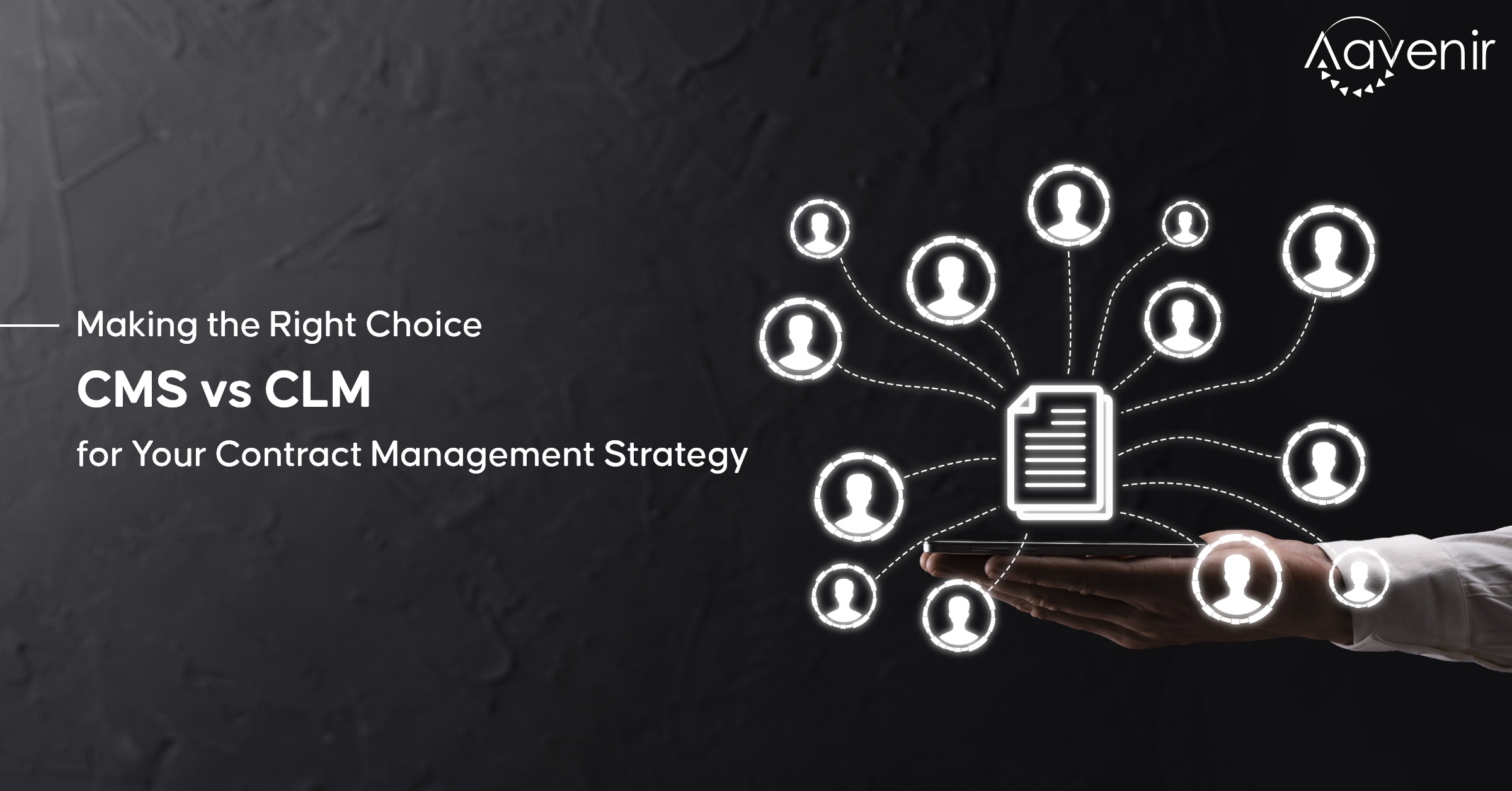Are you struggling to decide between a CMS (Contract Management System) and a CLM (Contract Lifecycle Management) solution for managing your contracts? You’re not alone – many contract managers are unsure which option is best for them and what they need to achieve their specific goals, such as reducing contract cycle times, improving compliance, or increasing visibility. Contract management is a crucial aspect of any business operation. While both systems share some similarities, they differ significantly in their functionality and purpose. In this article, we’ll explore the key differences between a CMS and a CLM solution to help you make an informed decision.
Basic Difference – CMS vs. CLM
In layman terms, a CMS (contract management system) is just like a filing cabinet that stores and organizes contracts. It provides easy access to contracts, like how a filing cabinet makes it easy to find documents. On the other hand, a CLM (contract lifecycle management) solution is like a personal assistant that helps you manage the entire contract lifecycle, from start to finish, just like how a personal assistant helps you manage your daily tasks. A CLM solution provides a comprehensive set of tools to help create, negotiate, approve, execute, monitor, and report on contracts. It provides a collaborative environment for all stakeholders involved in the contract lifecycle, like how a personal assistant helps you manage and communicate with multiple people involved in your daily tasks.
In a nutshell, while a CMS acts as a filing cabinet, a CLM functions like a personal assistant that helps you manage the entire contract lifecycle.
Primary Focus
A CMS is a software system that is primarily focused on storing and organizing contracts, including their associated documents and data. A CMS provides functionalities such as document storage, version control, contract search, and reporting. It helps organizations to manage their contracts by centralizing the contract repository, improving access to contract data, and reducing the risk of contract loss or misplacement.
On the other hand, a CLM solution is a comprehensive software tool that manages the entire contract lifecycle, from contract creation to contract renewal or termination. A CLM solution includes functionalities such as contract authoring, negotiation, approval, execution, monitoring, and reporting. It streamlines the contract management process by providing a collaborative environment for all stakeholders involved in the contract lifecycle. A CLM solution helps organizations to improve contract compliance, reduce risk, and increase contract visibility.
In summary, while a CMS focuses on contract storage and organization, a CLM solution provides end-to-end contract management functionalities.
Contract Analytics
In addition to their differences in contract storage and management, CMS and CLM solutions also differ in their ability to provide contract analytics. While a CMS may offer basic reporting features, a CLM solution typically provides more advanced data analysis tools to support strategic decision-making and improve contract performance. Contract lifecycle management software allows businesses to monitor contract performance, identify risks, and track compliance. This data can help organizations make informed decisions and manage their contracts more efficiently.
Contract Automation
One of the significant differences between CMS and CLM is the automation feature.
Some CMS solutions may offer basic automation features such as document creation templates or automated email notifications, but typically CLM solutions provide more comprehensive automation functionalities. CLM solutions are designed to automate the entire contract lifecycle, from contract creation to renewal or termination, while also providing workflow automation, electronic signatures, and other time-saving features. So, while some CMS solutions may offer basic automation features, CLM solutions are generally better equipped to streamline the entire contract management process, save time, minimize errors, and reduce manual workloads.
CLM software also provides organizations with alerts and notifications to remind stakeholders of critical contract milestones and deadlines.
Contract Compliance and Obligation Management
Another significant feature of CLM solutions is contract compliance management. CLM software ensures that contracts comply with regulations and standards, reducing the risk of legal disputes and penalties. The software also enables businesses to monitor contract performance and identify areas of improvement.
Advanced contract lifecycle management solutions offer comprehensive extraction of clauses and obligations from the complex contract language and assign fulfilment tasks to the stakeholders to stay compliant.
CMS vs CLM – What’s the best for you?
In conclusion, it’s clear that CMS and CLM solutions are not interchangeable as they serve different purposes in contract management. CMS provides basic contract management tools, while CLM offers a more comprehensive suite of tools that cover the entire contract lifecycle. With CLM software being more automated, businesses can save time and reduce the need for manual intervention, resulting in faster contract-related processes. It’s crucial for businesses to assess their contract management needs and choose the solution that best meets their specific requirements.
Ultimately, businesses need to assess their contract management needs and choose the solution that best meets their requirements.





